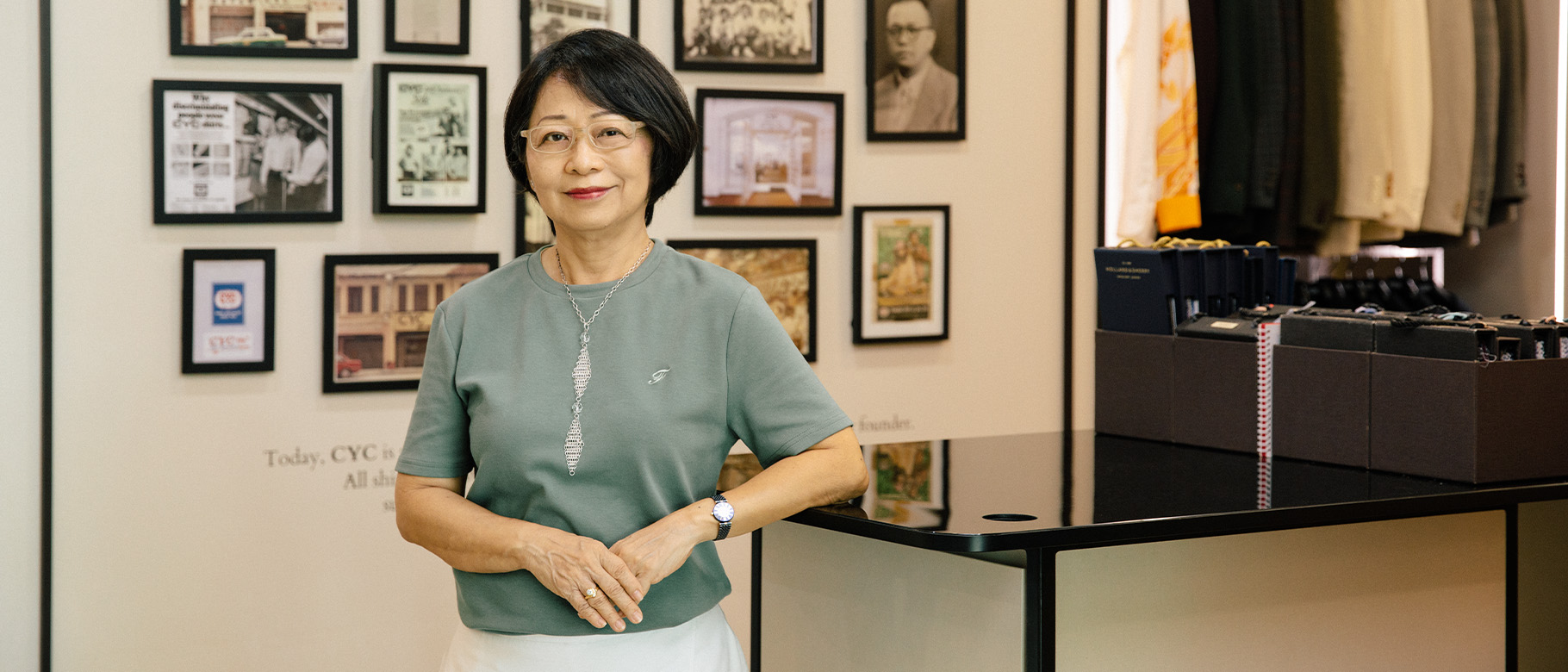

In temperate countries, shirts spend a lot of time lurking beneath a coat, playing support to a suit jacket or blazer. Go to steamier locales, however, where wearing a jacket outdoors can be an ordeal, and the shirt takes on a starring role.
Few destinations are more sultry than the Southeast Asian city-state of Singapore. Situated one degree north of the equator, here, humidity averages 84 per cent, while temperatures at noon often creep beyond 33 degrees Celsius. There are no seasons. It’s hot and sticky, year ’round.
“Essentially it’s always summer in Singapore – the heat is insane, so most professionals you’ll see on our streets will wear a simple business shirt and trousers,” says Bernice Chia, head of retail at tailored shirtmaking specialists, CYC. “As a result, the shirt becomes the central piece of the outfit.”
That means it’s vitally important the shirt fits properly, is in a flattering colour or pattern, and is cut from a cloth that offers some measure of ventilation – but isn’t so paper-thin that it clings to the body at the first appearance of perspiration.
Perhaps this need for the ideal shirt goes some way to explaining why Singaporean men of all socioeconomic strata habitually invest in this particular piece of apparel tailored. For many decades now, a sizeable percentage of them have relied on CYC to meet their custom shirtmaking needs.
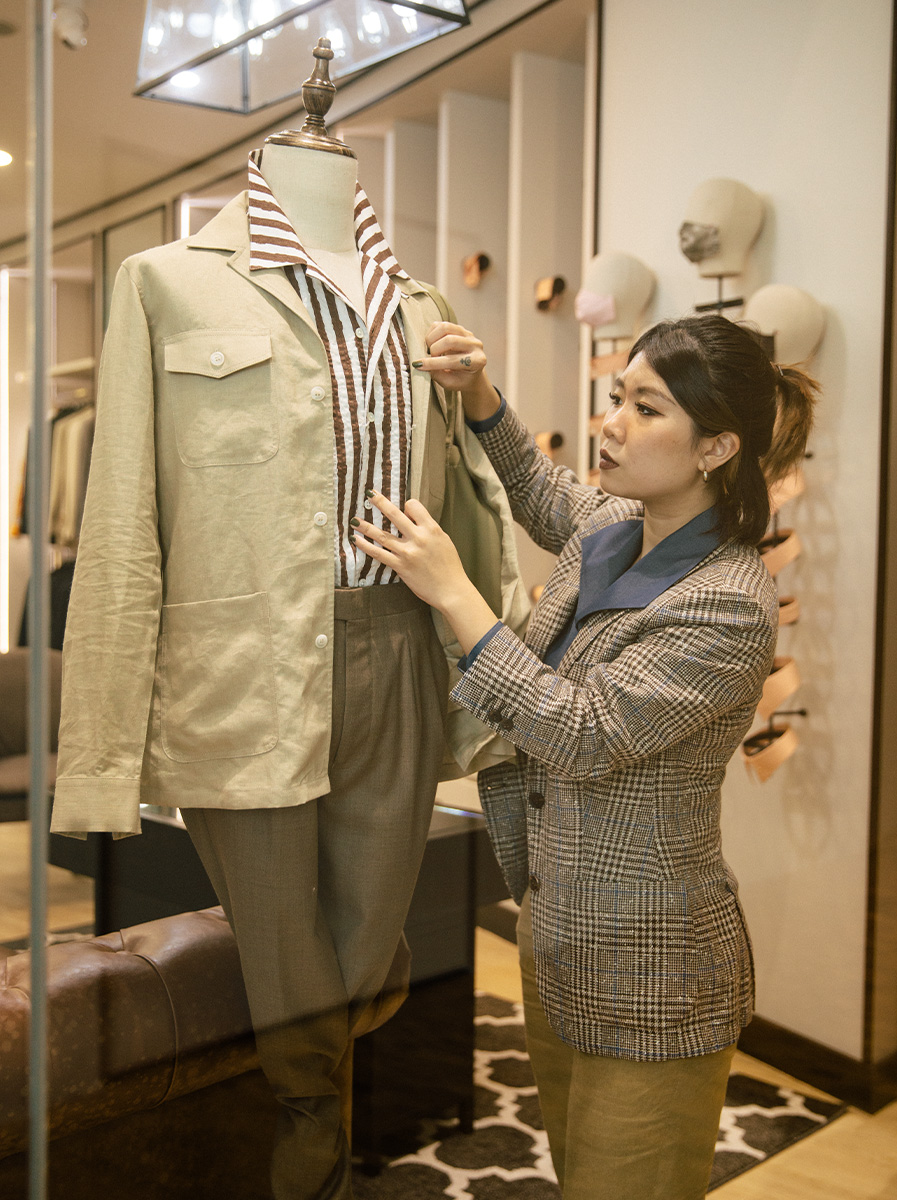
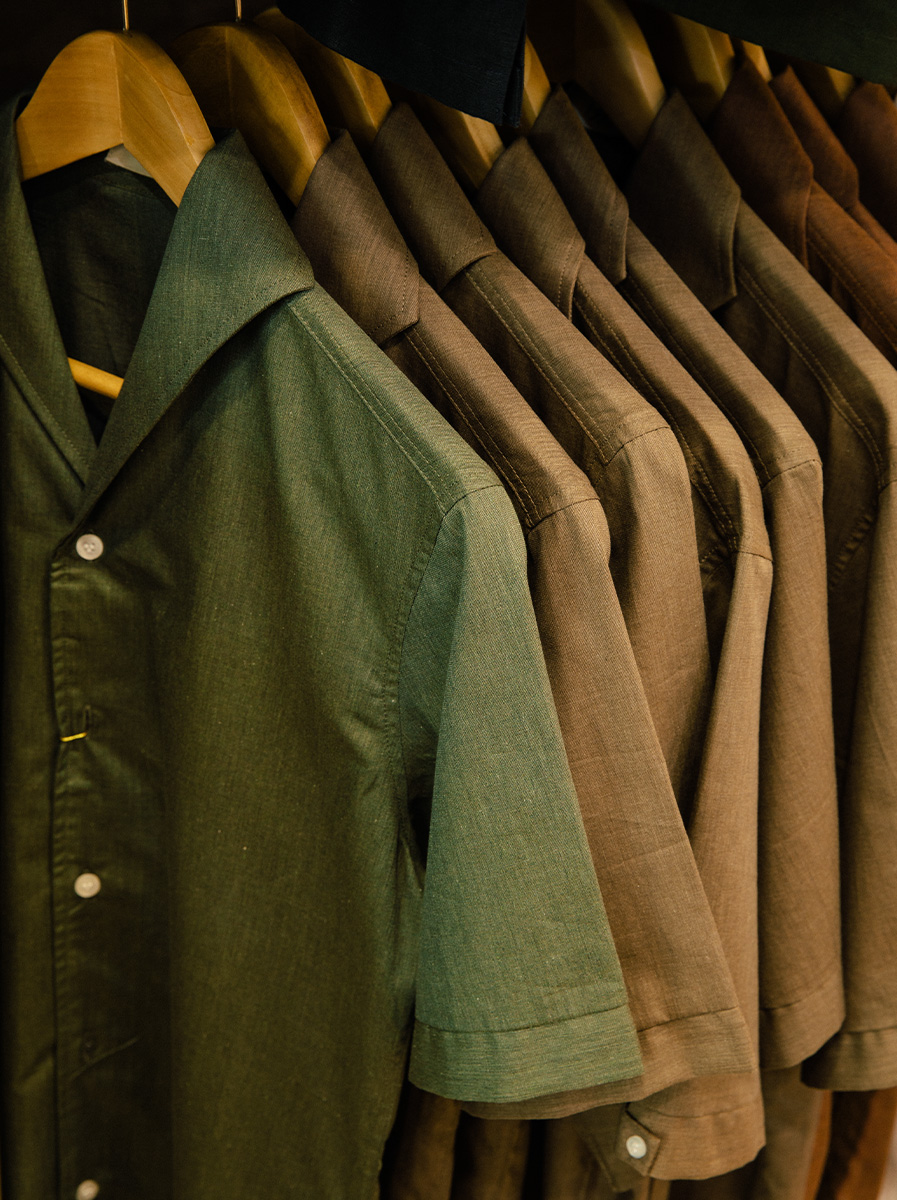
CYC got its start back in 1935, when founder Chiang Yick Ching emigrated from Shanghai. There, he’d mastered the sartorial arts working within that city’s thriving Jazz Age tailoring scene. During his early days in Singapore, Chiang began humbly, a one-man business making custom shirts out of a hole-in-the-wall concession, before gradually saving enough money to open a proper store after the end of World War II.
Twenty years later, following Singapore’s independence, the city-state experienced a period of swift economic growth, soon becoming a financial hub to rival neighbouring Hong Kong. Chiang’s sons took the reins at CYC and oversaw its swift expansion, winning loyal customers among Singapore’s burgeoning financial and political elite.
Famously, the man credited with steering Singapore’s transition from third world to first, long-serving Prime Minister Lee Kuan Yew, was a devoted customer of CYC. Several of Lee’s 1970s shirts hold pride of place in CYC’s archives, and many of Singapore’s top politicians continue to patronise the tailor.
The company did a roaring trade in the boom-times of the 1980s, expanding aggressively, with 10 stores dotted throughout the island of Singapore and exports across Asia. But when Chiang’s granddaughter Fong Loo Fern took over the business in the early 1990s, she consciously scaled down the operation, taking CYC back to its roots focusing on individually tailored garments.
In keeping with this elevated approach, for more than 20 years, CYC was headquartered at Singapore’s iconic Raffles Hotel. But when that property shut for a four-year renovation in 2017, the tailor moved to another historic structure: the 1930s Capitol Theatre complex. There it remains today, conveniently located adjacent the supreme court and parliament house, with the financial district a short walk away.
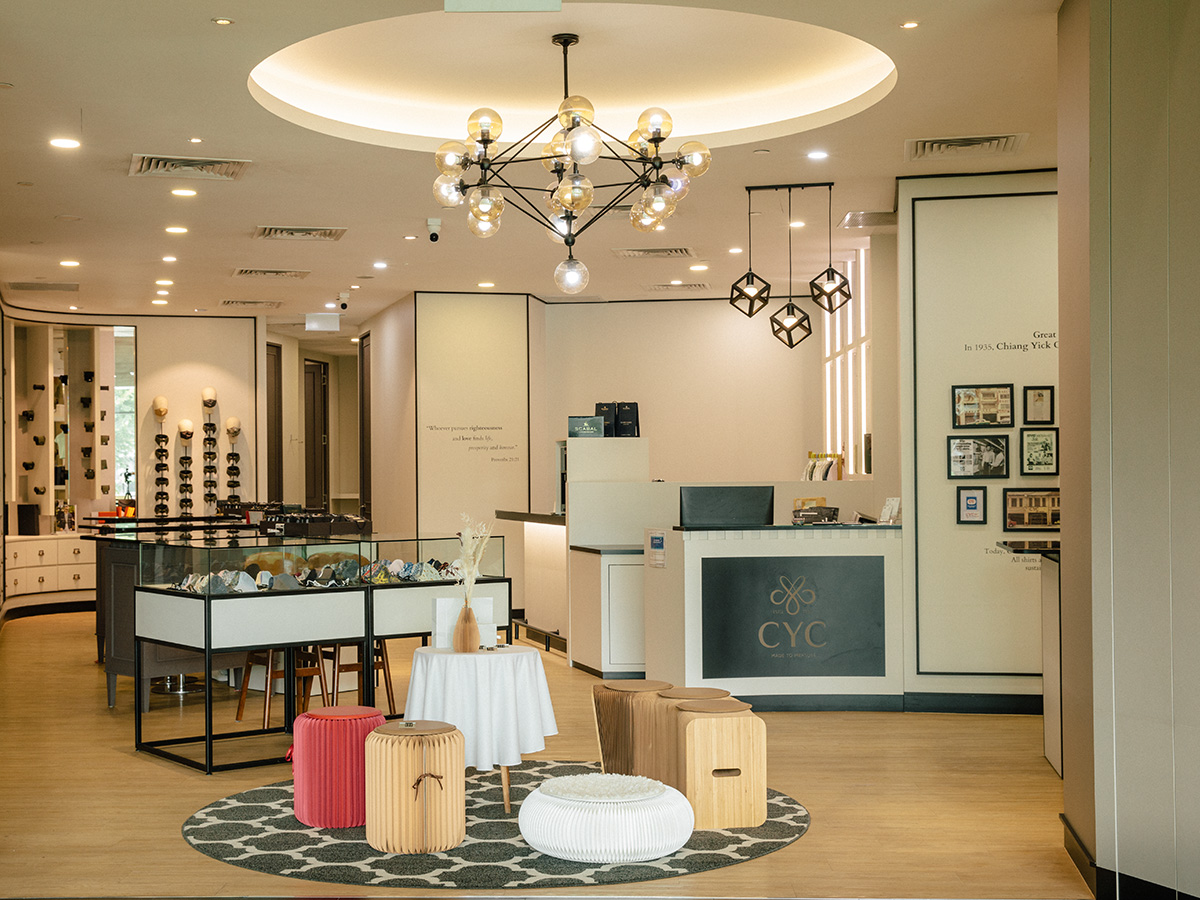
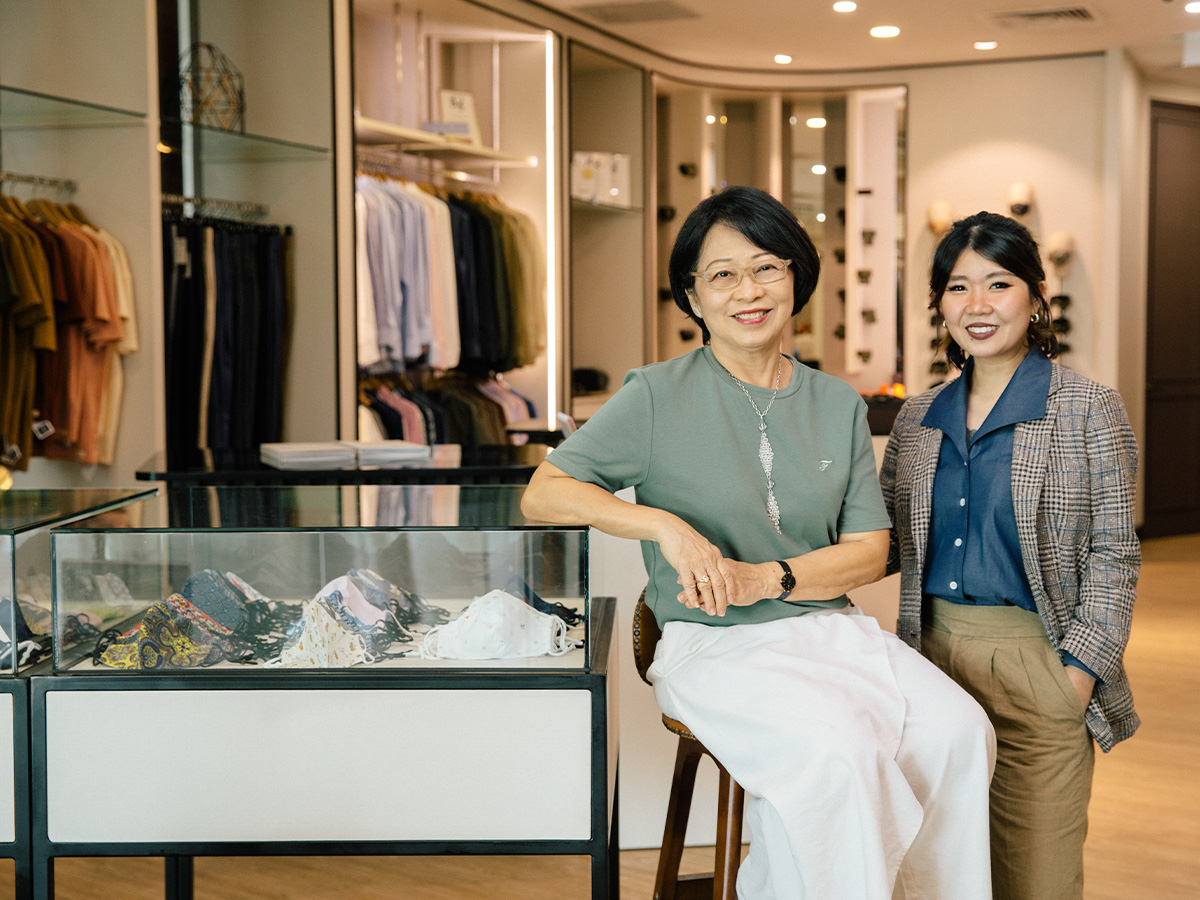
Despite catering to many of Singapore’s great and good, CYC prides itself on the accessibility of its offering. “Our shirts in quality Thomas Mason cottons are priced very reasonably, I think,” says Mrs Fong, CYC’s managing director and third generation of the Chiang family at the helm.
“We actually stock a lot of the fabrics, whereas many tailors fly in the cut lengths, piece by piece as they’re ordered by clients, which adds greatly to the expense,” she says, explaining one way CYC is able to offer such attractive pricing.
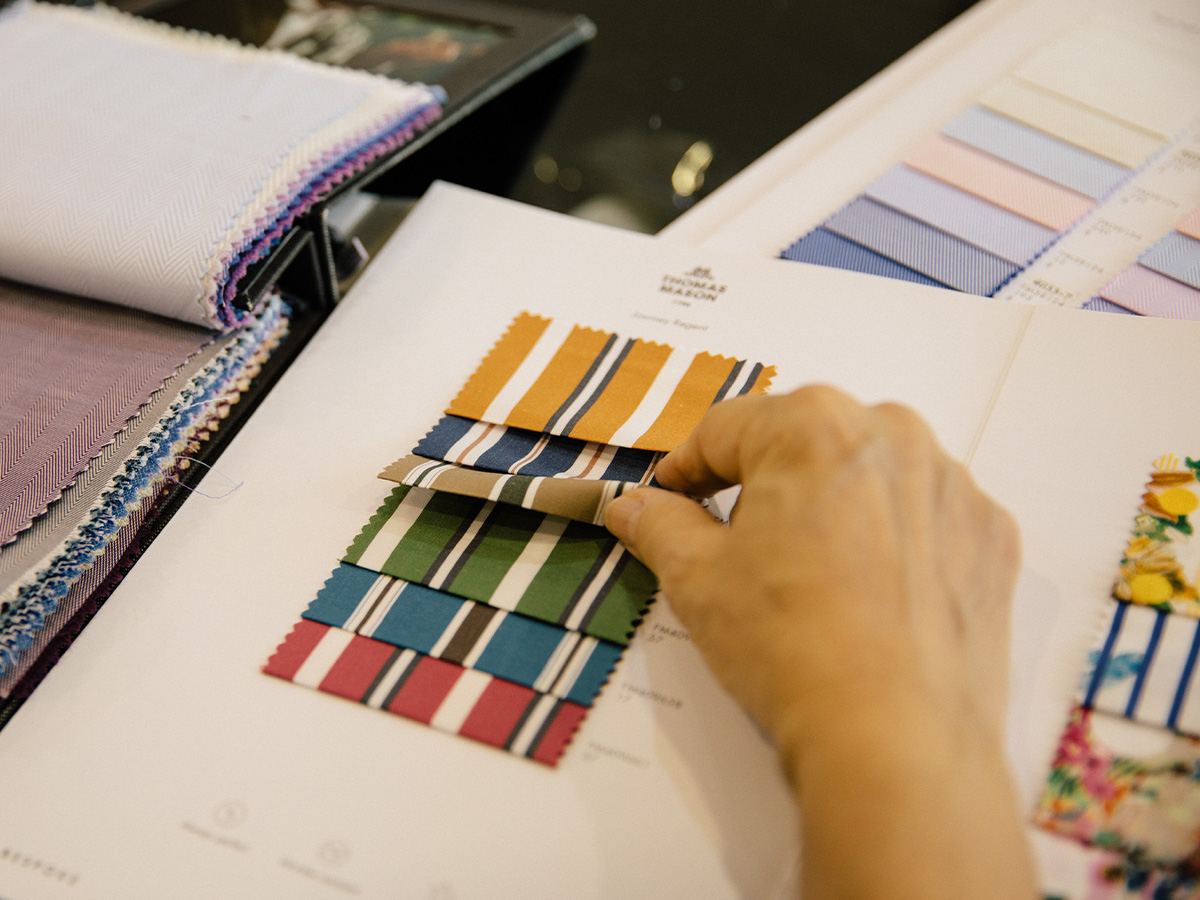
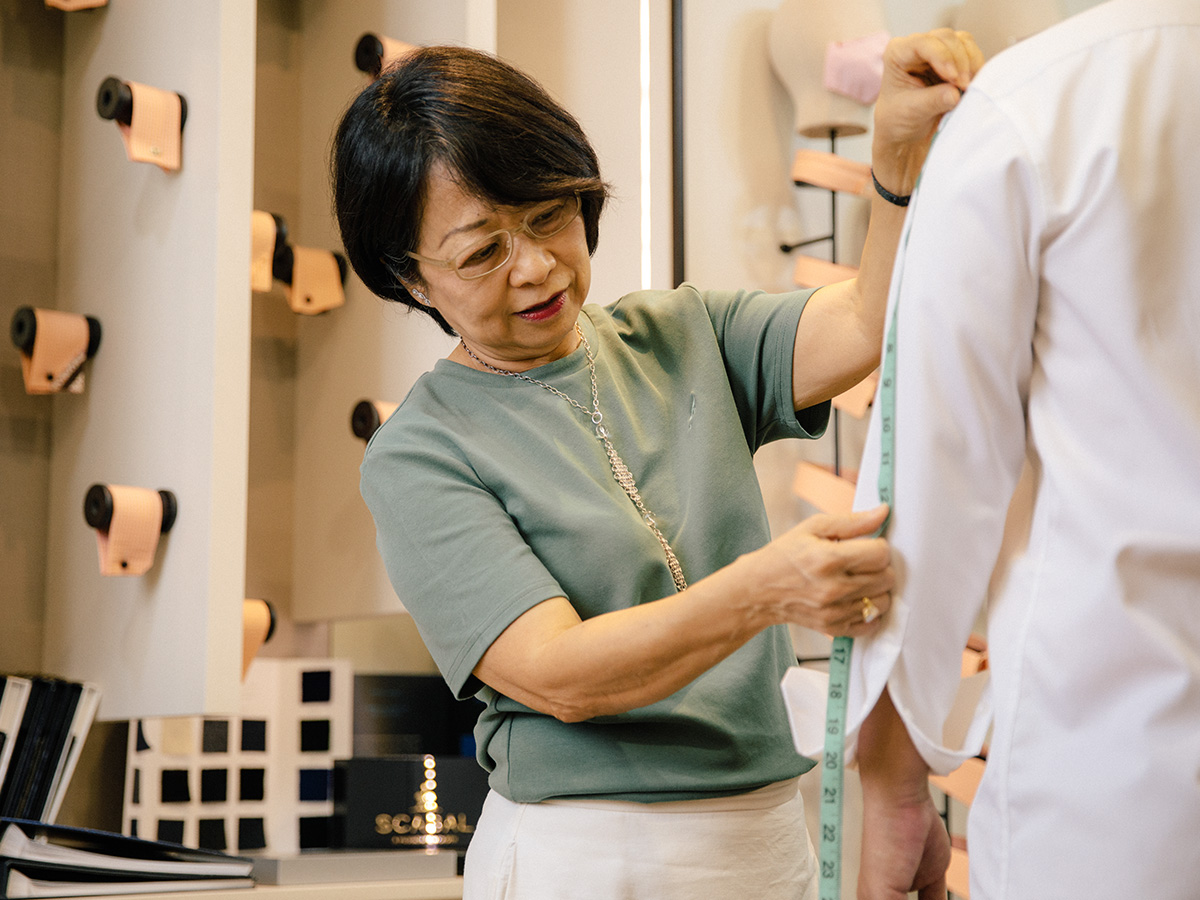

CYC also has an in-house production team of around 20 pattern drafters and seamstresses, some of whom have been with the company for 40 or more years. Meanwhile, many Singaporean tailors farm out shirtmaking, again paying a premium – inevitably passed on to the consumer – to have the work done piece by piece.
“Singapore is a rather conservative country, so most men here go for shirts in classic colours such as white, blue and pink,” Bernice says. The type of customer looking for a reliable workday shirt often gravitates to Thomas Mason’s Royale line, one of my personal favourites, she explains.
If they want something with a bit more body, they’ll lean toward Royal Oxford. “That’s a robust cloth, with a density that makes it particularly suitable for a heavier weight shirting but without being too rigid,” Bernice notes.
It’s not all orthodox corporate attire here, however. In spite of the nation’s inherent restraint, as Singaporean men are used to having their shirts tailored, many have grown fond of sartorial experimentation and personalisation.
“In the 1990s, CYC became well-known for the crazy trims, collars and details we could offer our clients,” Mrs Fong says. “The level of customisation was endless, and almost every shirt that came out of our factory had a design that was unique to the wearer.”
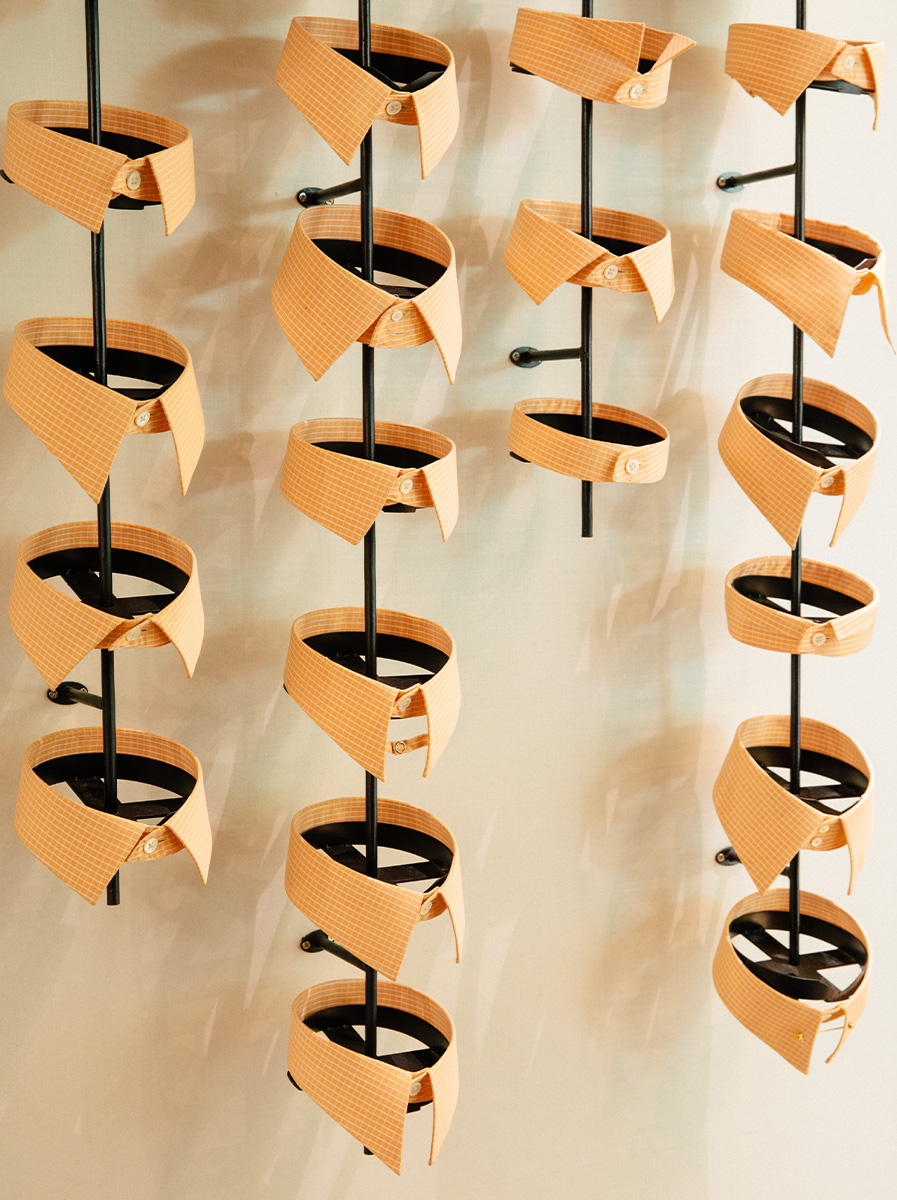
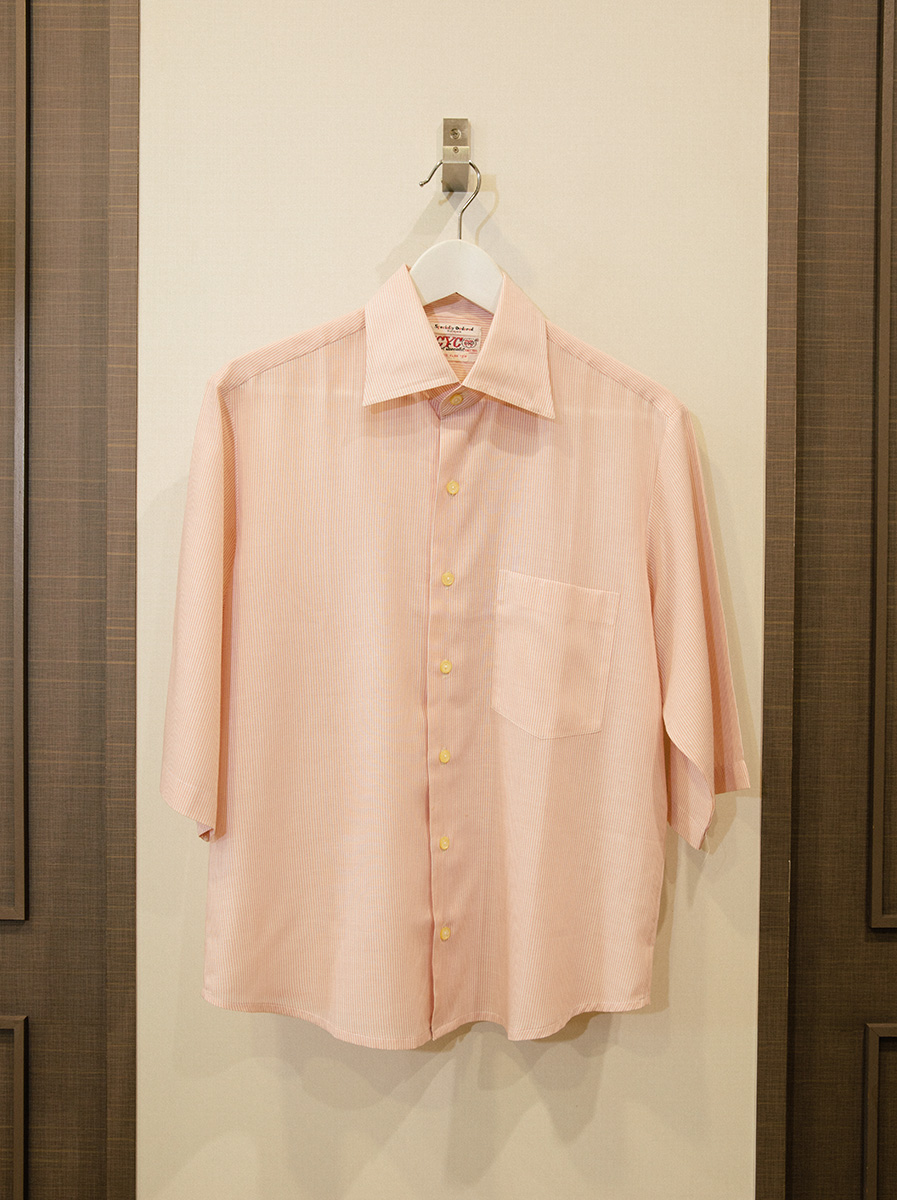
Bernice says, “Some of our long-time customers still appreciate this sense of expressive dressing. These clients often go for unexpected choices of cloth. They love Thomas Mason’s Silverline for its exceptional handle, durability, colour vibrancy and variety. Orange and purple are surprisingly popular.”
Singapore may be known for its sobriety and traditionalism as a society. Yet in regards to shirting at least, it appears that nonconformity and individuality are not only tolerated, but encouraged.
Learn more about CYC at cyctailor.com
Photography by Juliana Tan
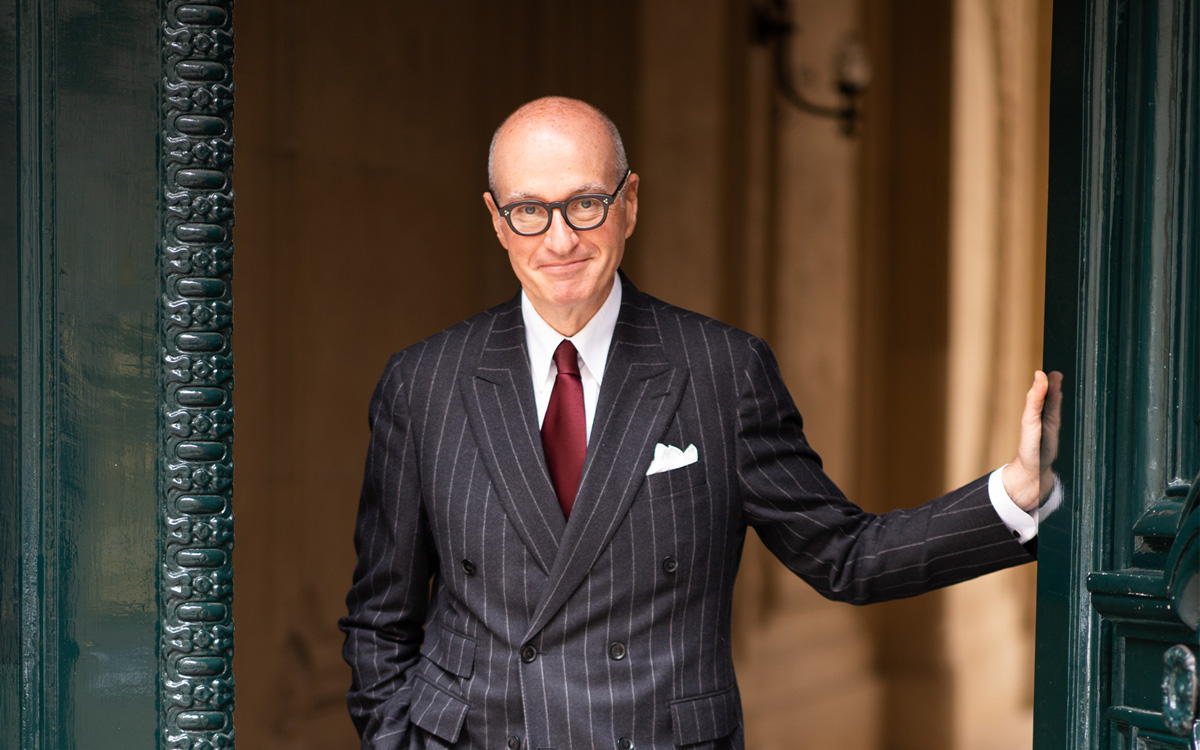
Polite societé: Daniel Lévy
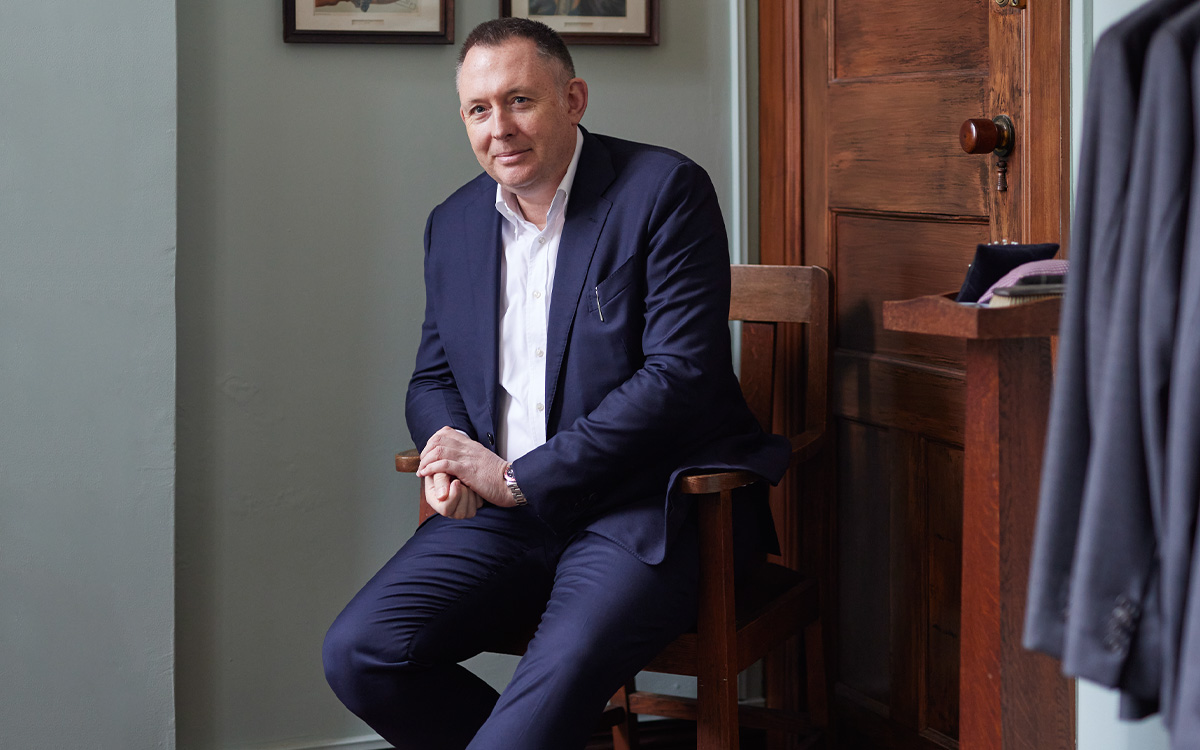
Crane Brothers: Antipodean Dolce Vita
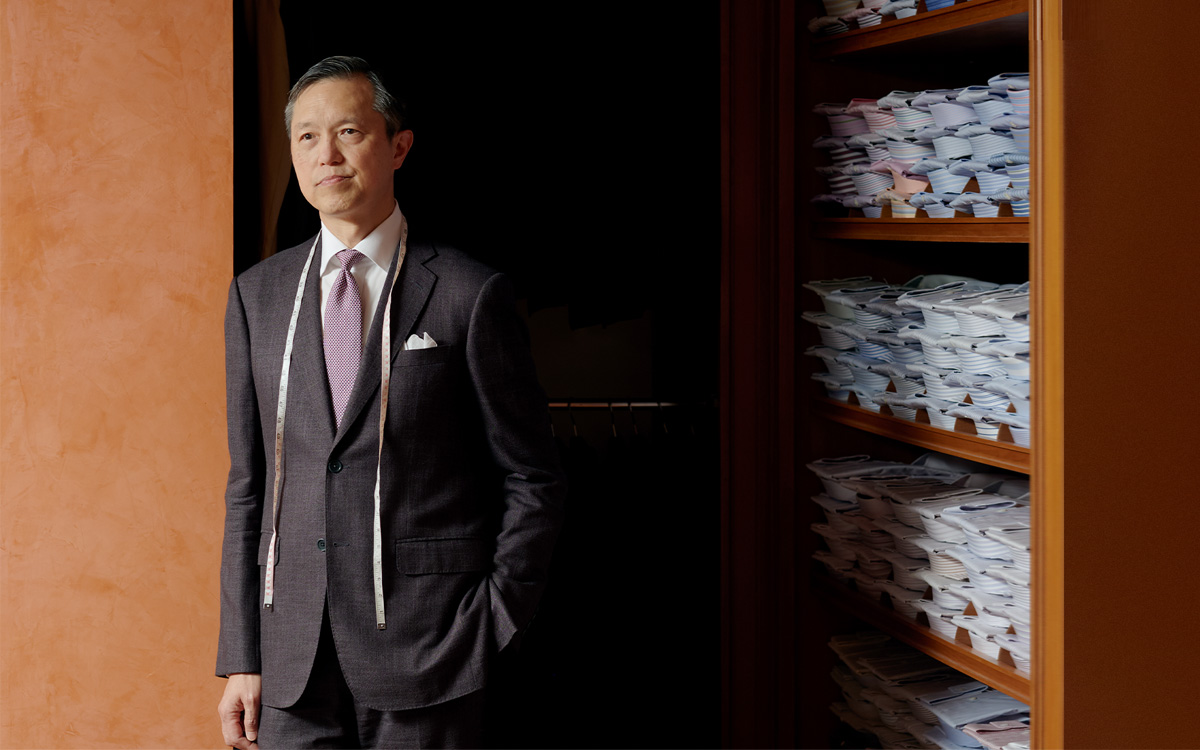
Ascot Chang: A Legacy of Quality
Cotonificio Albini S.p.A. - Via Dr. Silvio Albini 1, 24021 Albino (BG) – Italy
Società con unico socio - diretta e coordinata da Albini Group S.p.A.
P.I. 01884530161 - C.F. 08743540158 - Iscritta al Registro Imprese di Bergamo - REA 244649
Capitale sociale sottoscritto e versato € 11.170.960